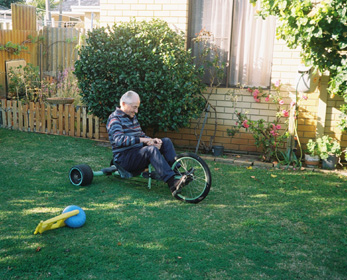The No More Shame study, led by Professor Bianca Brijnath at the National Ageing Research Institute, aims to address the stigma of elder abuse that underlies these current reactions by improving its recognition, response, and referral by health providers. This intervention will comprise a co-designed training program for health providers who work with older people in hospitals. ECU's Dr Catriona Stevens will coordinate the WA sites participating in this trial.
The outcomes of the trial are significant and measurable improvements in health providers knowledge of elder abuse and ageist attitudes; hospitals detection and responses to elder abuse; and older people’s sense of safety, quality of life, and mental health.
This study will realise a key priority for the MRFF Dementia, Ageing and Aged Care Mission, which is to create models of care that maximise medical, nursing and allied health impact to improve quality of life for older Australians. With 14.8% of older Australians experiencing elder abuse, health providers play a vital role in helping elder abuse victims realise that they have nothing to be ashamed of and to create a safe environment for reporting and response.

